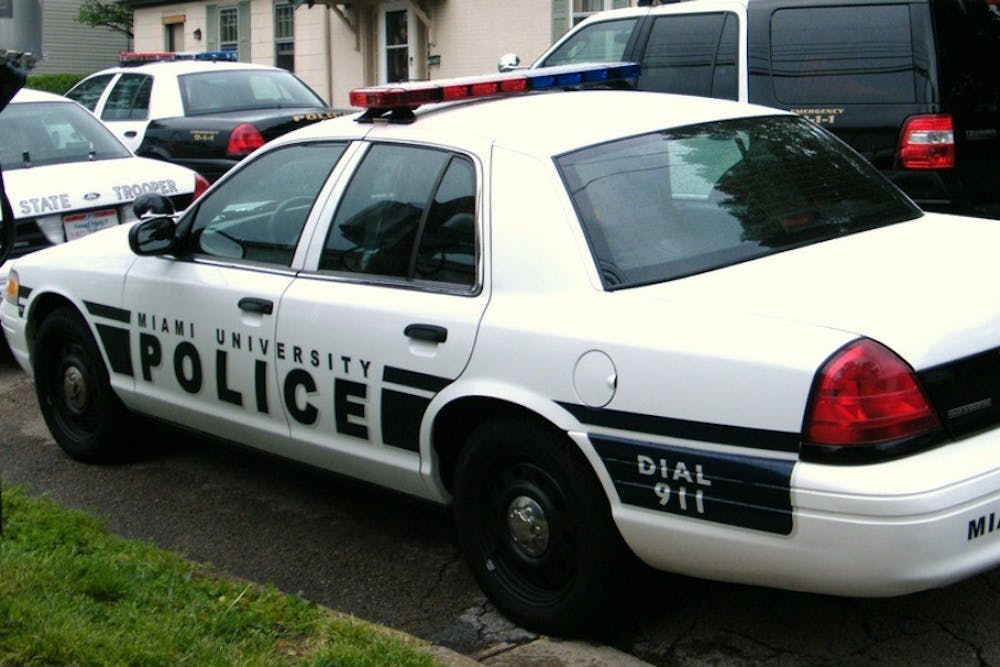The following piece, written by the editorial editors, reflects the majority opinion of the editorial board.
Sometimes when we talk about certain stories in the newsroom, there's a crippling "so what" question in the back of our minds. We know what we're reporting is important and has value; but on some level, we're thinking: Why does this really matter?
This question lingered around the table, for some of us, this week as we talked about Miami University Police purchasing body cameras. Soon, Miami police will wear body cameras and, although this is front-page news, we couldn't figure out why we should all care.
The national conversation about body cameras highlights a few talking points and a few reasons to care. If police officers had been wearing body cameras in Ferguson on an August night, some say, it would've shed light on Michael Brown's death. Others look to the case of Eric Garner who died after an officer put him in a chokehold; a camera recorded the whole interaction, but the officer was not indicted. There's a call for more police departments to embrace body cameras, and a response that, maybe they don't make a difference.
So, we narrow in on Oxford and we ask, why would Miami police need body cams? Our campus isn't exactly known for rampant crime sprees. Nothing really happens here. We're not Ferguson. We're not Staten Island.
Let's consider this, though. Back in 2008, a Miami student was shot with a Taser outside Brick Street while police were trying to break up a late-night fight. Kevin Piskura, who was 24, went into cardiac arrest at the scene and he died five days later. The officer apparently ordered Piskura to "back up or back away" from the fight, but we don't know if he did or not. Based on first-hand accounts and testimonies, Piskura's parents reached a settlement with the City of Oxford and the Oxford Police Department for $750,000 two years ago. We don't know how real footage of that moment would've factored into the court's proceedings; we can only wonder. There's no clear image of what happened in front of Brick Street that night; we don't know if any slight movement could've saved Piskura's life.
This happened here, though. And that's enough. The one time where a family or a judge or this newspaper has to wonder about what really happened - and a camera could've helped - is enough. In this space, The Editorial Board could draw up a lot of answers to the "so what" question. We could knit-pick MUPD's decision, we could point out that $16,000 is a lot of money to spend. We could list what-ifs about turning the camera off and on and we could imagine potential situations where body cams wouldn't really help on campus. We could call for all footage to be public record, so we can upload daily videos on our website and increase our traffic. We could take a vote and take a stand on the use of body cameras in each city around our nation. We could keep going and keep searching for big takeaways.
Instead, we say this: body cams will serve our campus and our students in ways we can't predict or fully understand yet. They might make an otherwise gray altercation more black-and-white. They might hold our officers more accountable. They might keep us from wondering what really happened. They might hold answers.
We sit around this table and collectively say, this is good. This will help. We think about Kevin Piskura and we know this matters.

